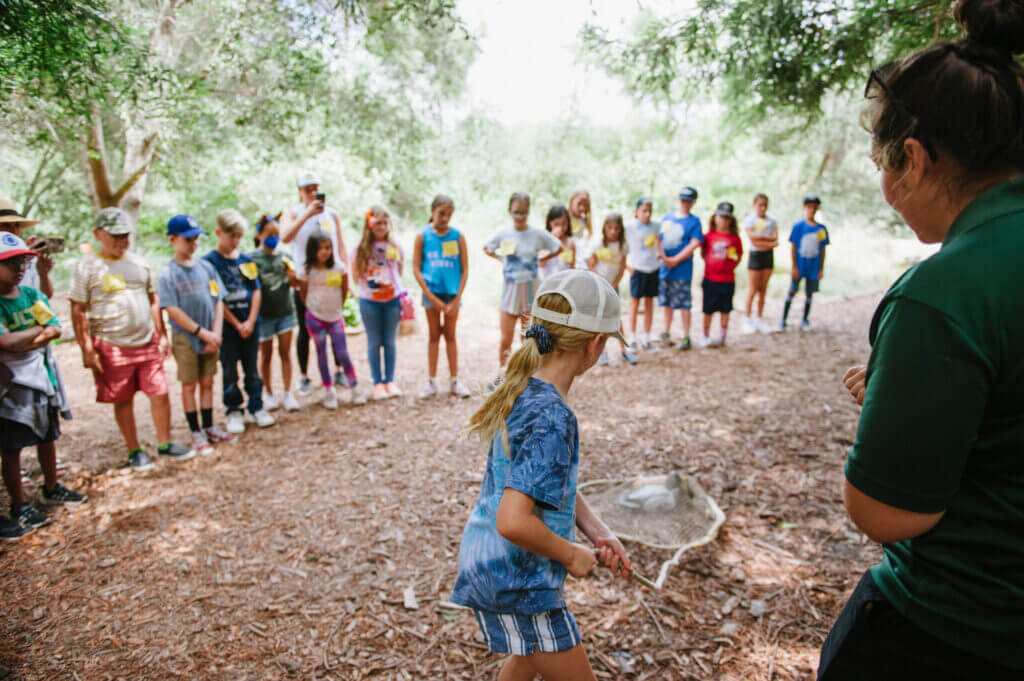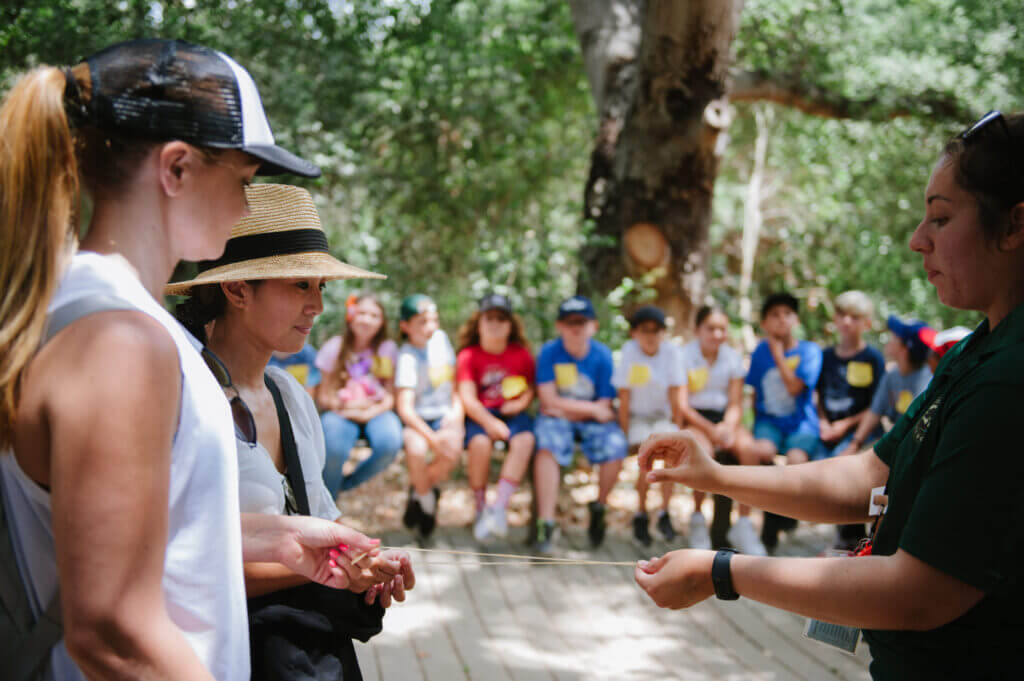We believe all California students deserve a high-quality education that promotes achievement, health, and well-being. Our mission is to strengthen the partnerships and strategies that will bring environmental literacy to all of California’s TK–12 students. Our name, Ten Strands, illustrates our approach. We weave together people and strategies to form strong education partnerships with the goal of increasing environmental literacy throughout the system of public education. We work inclusively with others to bring resources, stakeholders, and expertise together, with a focus on equity and cultural relevance. We do not duplicate what is already being done, or what others can do better. We act as a connector and a catalyst to build capacity—and transform systems to increase their impact and sustainability.
Our strategic plan builds on this premise and the foundation we have laid over the past 10 years and provides a road map for advancing our mission as we move forward. The strategies outlined were developed with input from staff, board members, partners, and funders. Our resulting plan outlines three complementary priorities that together have been weaving environmental literacy into California’s TK–12 schools, ensuring that all California’s students understand the interdependence of humans and the environment.
STRATEGIC PRIORITIES
Priority 1: Advocating for the expansion of environmental literacy in California public schools

State and local policies are critical to ensuring that environmental literacy is an integrated and sustainable component of every California student’s education. Ten Strands sponsored SB 720, co-authored by Senator Ben Allen and Assemblymember Tony Thurmond (now California State Superintendent of Public Instruction). This legislation strengthens California’s commitment to equitably provide all public school students with opportunities that will empower them to become environmentally literate citizens prepared to lead our state into the future. SB 720 was signed into law by Governor Edmund G. Brown Jr. on September 13, 2018. Also, in July 2021, working again with Senator Allen, we were able to secure $6M to launch the Climate Change and Environmental Justice Program in partnership with the San Mateo County Office of Education and the California Department of Education. We have been building on SB 720 and the $6M appropriation by pursuing the following objectives:
- Enhancing legislative support for the integration of environmental literacy in TK–12 schools.
- Increasing ongoing public funding for environmental literacy in TK–12 schools.
Priority 2: Building the capacity of county offices of education and districts to integrate environmental literacy

Throughout California, school district and county office of education leaders are coming together with community-based organizations, local government, and others to formally prioritize environmental literacy as a common goal, and they are working together to incorporate environment-based learning into every TK–12 student’s experience. Ten Strands is investing in pilot projects with county offices of education and school districts to develop and implement environmental literacy plans that can be replicated in other areas. These plans highlight standards- and environment-based learning inside and outside the classroom. Ten Strands has been advancing this priority in the following ways:
- Supporting leadership capacity-building among county offices of education and school districts.
- Strengthening the capacity of community partners to work in partnership with county offices of education and school districts to implement environmental literacy in schools.
- Accelerating the creation and dissemination of resources to scale environmental literacy.
Priority 3: Fostering a broad and inclusive network of support for environmental literacy

Ten Strands leads the California Environmental Literacy Initiative (CAELI) to create a system of support in California so that all students access local, standards- and environment-based experiences that enhance their learning inside and outside the classroom. We have been expanding on our work with CAELI to support environmental literacy in California. Key objectives include:
- Expanding engagement in, and leadership of, the environmental literacy network so that leadership is reflective of California’s student demographics and geography.
- Catalyzing environmental literacy in the TK–12 community and actively seeking opportunities for environmental literacy to advance network participants’ priorities.
Photos by Hannah Arista.
